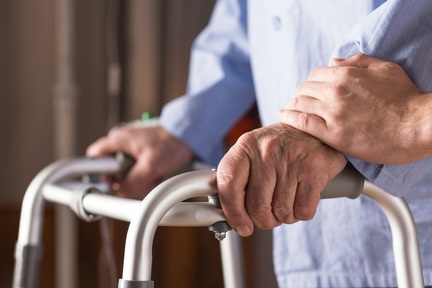Lack of GP support creates a generation of carers with mental health illness
Nearly three-quarters of carers in the UK have experienced mental ill health due to caring responsibilities, with over half saying they expect their physical health to worsen in the next two years, according to a research report released to coincide with Carers Week.

The State of Caring 2018 report surveyed 5,051 carers from England, 547 from Northern Ireland, 645 from Scotland, and 514 from Wales, and it paints a very bleak picture of being a carer in Britain in 2018.
Well over half of respondents (61 per cent) admitted to a decline in physical health because they were caring for a friend or relative.
The definition of a carer is someone who provides unpaid care and support to a family member or friend who has a disability, illness, mental health problem or who needs extra help as they become older. There are thought to be up to 6.5 unpaid carers in the UK.
The report by charity Carers UK has found carers are “not routinely supported with their own health and well-being” by healthcare professionals.
It warns of the immense demands being put on individuals, who are often juggling work with care commitments. The result is a downward spiral of depression and ill physical health for many carers, who cannot see any way out of their situation. As one carer put it, ‘I will just cope and carry on. What are the alternatives?”.
Heléna Herklots, chief executive of Carers UK, said: “This new research is a stark reminder that the enormous contribution made by the UK’s 6.5 million unpaid carers must not be taken for granted.
“Without the unpaid care provided every year by family and friends, our health and care services would collapse. Yet the physical and mental strain of caring, without enough support, is jeopardising carers’ ability to care in the future.”
The main concerns reported by carers about their own health and well-being include; the impact of caring on relationships with a partner, friends or family; getting enough sleep and exercise; putting off health checks or medical treatment, and persistent injury caused by or exacerbated by the physical strain of providing care.
Worryingly, a half of carers reported they had let a health problem go untreated, with a third saying that they had physically injured themselves whilst caring for a relative.
Ms Herklots added: “Caring for a loved one too often means carers neglect their own mental and physical health; finding the time and space to be healthy, get enough sleep and maintain relationships with others are all huge challenges identified by carers. Being left unprepared for carrying out care tasks and battling with a complex health, benefits and care system are piling yet more stress onto carers.”
One respondent of the survey admitted: "There is no time to consider my own physical or mental health". Another said: “I feel that I have no option but to continue caring despite the negative impact on my own health and wellbeing".
Carers UK is calling for GPs to systematically provide more support for carers, and for the wider public, including employers, to encourage carers to get access to the health and wellbeing services and support they need.
Ms Herklots believes the Government also needs to act. She said: “There is a key role for Government too. The forthcoming Green Paper on social care funding provides a must take opportunity for the Government to put in place sustainable funding for social care and to improve the support available for carers.”
Latest News
 29-Jul-24
Dementia Bus gives carehome.co.uk staff insight into life with dementia
29-Jul-24
Dementia Bus gives carehome.co.uk staff insight into life with dementia
 27-Jul-23
UK's top home care agencies in 2023 revealed
27-Jul-23
UK's top home care agencies in 2023 revealed
 30-Nov-22
A quarter of older people keep their falls secret from family
30-Nov-22
A quarter of older people keep their falls secret from family
 29-Nov-22
'Covid-19 has not gone away' say terminally ill
29-Nov-22
'Covid-19 has not gone away' say terminally ill
 28-Nov-22
IT consultant who received poor care opens 'compassionate' home care business
28-Nov-22
IT consultant who received poor care opens 'compassionate' home care business